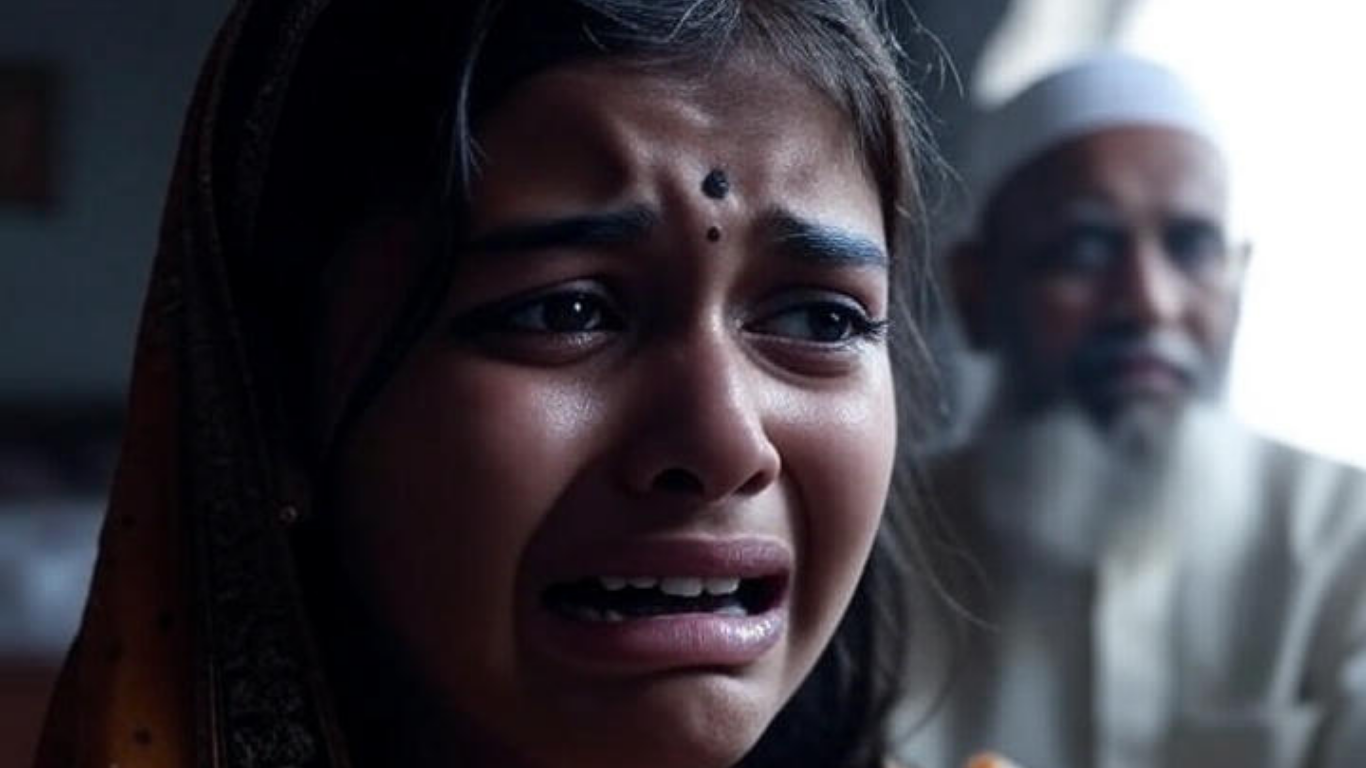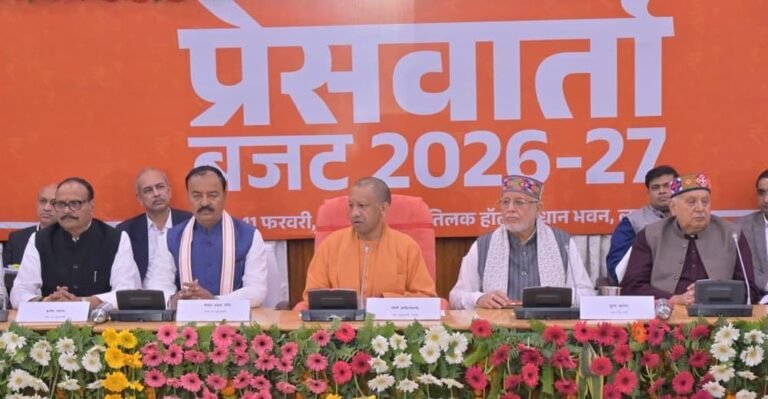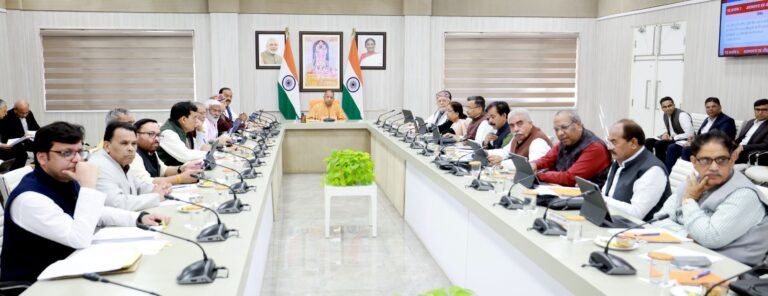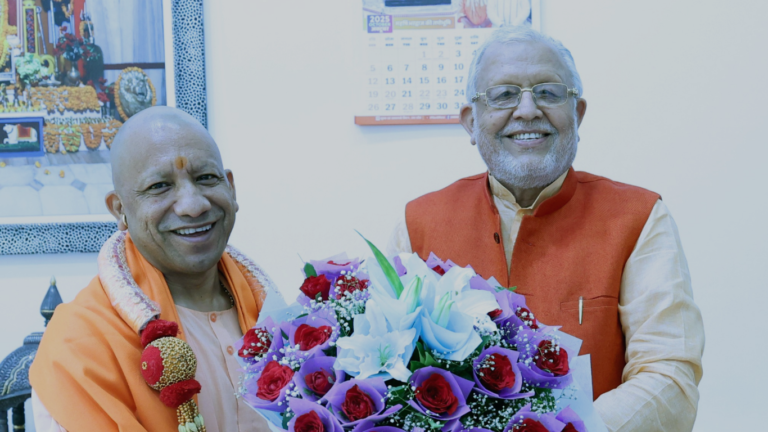
Agra, Uttar Pradesh – A major religious conversion racket uncovered in Agra has taken a startling turn with the revelation that two Pakistani influencers, Tanveer Ahmed and Sahil Adeem, played a key role in promoting illegal conversions through online platforms. The Agra police, in a sweeping investigation under “Mission Asmita,” have arrested 14 individuals and exposed a sophisticated network with alleged links to Pakistan, Dubai, and other international locations. The case, which came to light after two sisters went missing from Agra’s Sadar Bazar in March 2025, has raised serious concerns about national security and the use of social media to target vulnerable youth, particularly Hindu girls.
The Case Unfolds: A Missing Persons Report Sparks Investigation
The investigation began when the family of two sisters, aged 33 and 18, reported them missing in March 2025 at the Sadar Bazar police station. The elder sister, an MPhil graduate in Zoology pursuing her PhD, had been preparing for the NET exam in Agra when she met Saima, a woman from Jammu and Kashmir, during coaching classes in 2021. According to the family’s statement to India Today TV, Saima influenced the elder sister to visit Kashmir, where she was allegedly radicalized and converted to Islam. She began rejecting Hindu rituals, adopting practices like purdah and hijab, and grew distant from her family. In March 2025, she disappeared again, this time with her younger sister, who had recently turned 18. The sisters were later traced to Kolkata, where police rescued them.
A chilling detail emerged when one sister posted a photo holding an AK-47 on social media, raising red flags. The girls told police they were willing to return home only if the arrested suspects were released, claiming the accused were “serving their religion” and that their detention would prevent them from attaining “jannat” (heaven). This underscored the deep psychological influence exerted by the racket, which police say used social media, online games, and encrypted apps to brainwash targets.
Pakistani Influencers and Their Role
Agra Police Commissioner Deepak Kumar revealed that Pakistani influencers Tanveer Ahmed and Sahil Adeem were actively involved in promoting conversions through online platforms. According to police, the duo used YouTube channels, Instagram accounts like “Connecting Revert,” and WhatsApp groups to spread Islamic teachings and criticize Hinduism, targeting young women. Tanveer Ahmed, for instance, offered free Quran classes via Zoom, attended by people from India and abroad, encouraging conversions.
The police investigation found that the racket used online games like Ludo as an entry point to initiate casual conversations with targets. These chats gradually introduced religious content, with victims added to WhatsApp groups for further indoctrination. Three members of the gang were skilled in using the dark web and encrypted apps like Signal to evade detection, making the operation highly sophisticated. A Pakistani woman named Tehseen, based in Dubai, was also linked to the racket, allegedly facilitating fund transfers to avoid direct transactions with a Pakistani Maulvi.
Key Operatives and Modus Operandi
The racket’s mastermind, Abdul Rehman (formerly Mahendra Pal), a Firozabad native who converted to Islam in 1990, was arrested in Delhi’s Mustafabad area. His sons, Abdullah and Abdul Rahim, along with Junaid Qureshi, were among the 14 arrested. Ayesha, previously known as SB Krishna from Goa, was another key figure. The group targeted girls across states like Uttar Pradesh, Uttarakhand, Haryana, Rajasthan, and West Bengal, often using fake identities and SIM cards provided by Delhi-based Mustafa (alias Manoj). Abdul Rehman Qureshi, a soft-spoken shoe shop worker, ran a YouTube channel called “The Sunnah Channel,” preaching extremist ideology.
Police recovered conversion-related literature, including books by jailed cleric Maulana Kaleem Siddiqui, from Rehman’s residence. The racket allegedly received funding from the UAE, Canada, London, and the US, with some transactions in cryptocurrency routed through Gaza. One accused, Rehman Qureshi, raised funds via crowdfunding, sharing conversion stories abroad to secure donations. The network operated in modules: one for fundraising, another for radicalization, and a third for hiding converted girls and arranging their marriages.
Victim Testimonies and Broader Network
A 21-year-old Dehradun woman, Srishti, whose name was changed to Maryam by the gang, provided a chilling testimony to Aaj Tak. She described being forced to recite the Kalma, adopt an Islamic name, and record voice notes declaring herself a “staunch Muslim” who wanted to migrate. Srishti escaped but said many girls remain trapped. Her account helped police conduct raids across seven states, rescuing girls from Dehradun, Bareilly, Aligarh, Jhajjar, and Rohtak. The investigation also uncovered links to terrorist organizations like Lashkar-e-Taiba (LeT) and the Popular Front of India (PFI), with funding traced to international sources.
Police Action and Ongoing Probe
The Agra police, supported by the Anti-Terrorism Squad (ATS), Intelligence Bureau (IB), and National Investigation Agency (NIA), have arrested 14 individuals, including Mohammad Ali (formerly Piyush Panwar) from Rajasthan, who expressed a desire to return to Hinduism during interrogation. The operation, dubbed “Mission Asmita,” involved 100 officers and raids in Uttar Pradesh, Uttarakhand, Goa, West Bengal, Delhi, Rajasthan, and Jharkhand. The police are probing further leads, including possible connections to Dubai-based handlers and other states like Maharashtra and Madhya Pradesh.
Official Response
The case has sparked outrage in Agra, with residents calling for stronger measures against such networks. Chief Minister Yogi Adityanath has emphasized strict action, and the police are counseling rescued girls to help them reintegrate.



